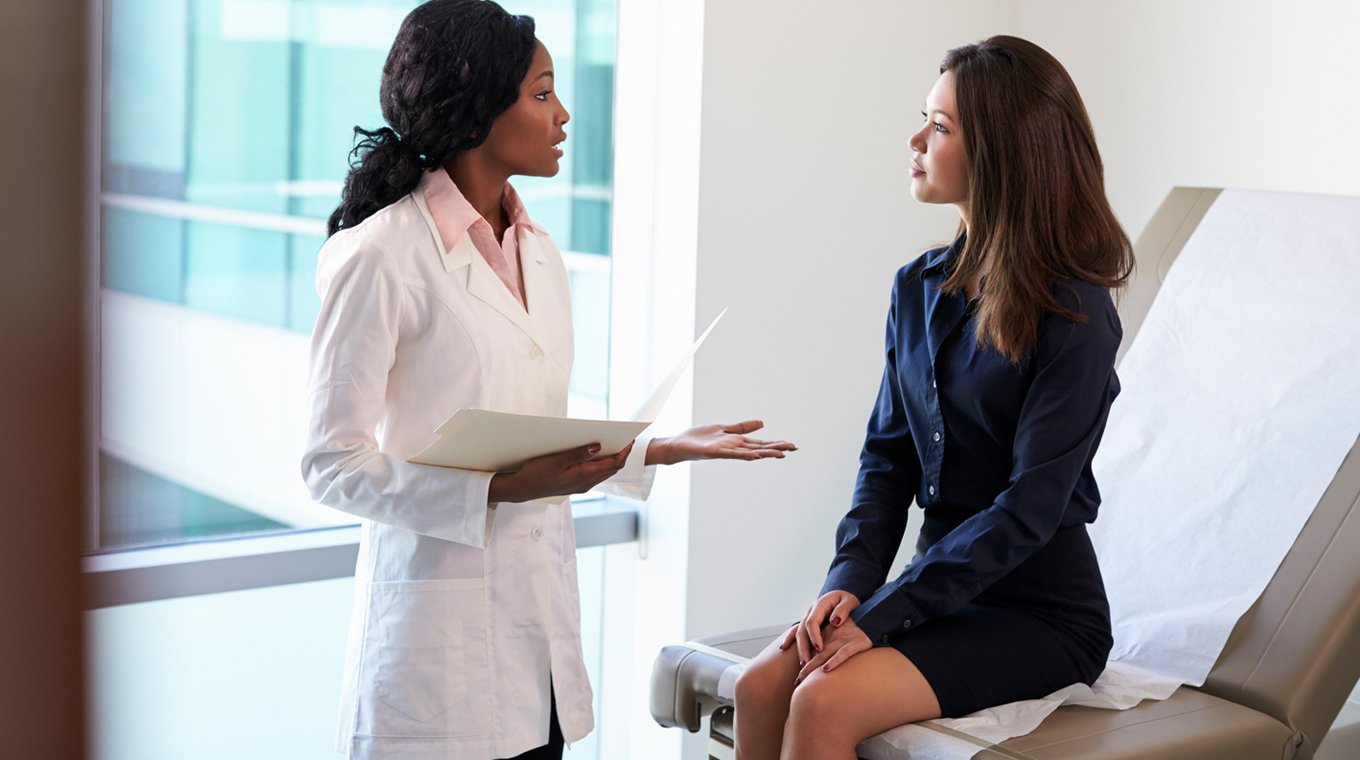In this article
You’re in your first trimester. What to expect during pregnancy is an exciting time filled with joy, giddiness, and questions. Understanding what to expect during the first trimester can help ease some of your anxieties about your changing body and growing baby. From knowing what symptoms are typical in the beginning, to what types of medical care or tests you need, checking off the beginning basics can help make your pregnancy more of a smooth path than a bumpy road.
Above anything else, it’s important to understand that the first trimester is “A time of rapid changes for the mother and baby,” nurse Beth Hawkes from NurseCode told Mom.com. Plan for these changes, so you are prepared.
Changes in your body: Extreme fatigue in the first trimester

Most women notice changes early on with their own body. Your body is changing to adjust to the growing baby. Here’s what you can expect.
Physical symptoms
Other than a missed period, some of the first signs that you’re pregnant are the physical ones. Between weeks one and 12, the influx of hormones may mean that you’re experiencing new aches and pains, such as headaches or heartburn, according to the U.S. Department of Health and Human Services’ Office on Women’s Health. You may also have swollen, tender or sore breasts and nausea and vomiting.
You may also experience extreme fatigue in the first trimester — and maybe throughout your pregnancy — so plan on resting as much as possible. Other symptoms, such as nausea and breast tenderness, are likely to gradually end by week 12.
Your baby’s development
While your growing body is obvious to you, what’s happening inside with your baby most likely isn’t. During the first trimester, your baby is growing from barely there to 3 inches long. By weeks four and five, your baby has visible arm and leg buds and a heartbeat. All of your baby’s major organs are beginning to form by week seven. At the end of the first trimester, your baby weighs about 1 ounce and has either male or female genitalia.
At the doctor's office: Discussing first trimester symptoms

Your doctor will want to track the progress of your pregnancy and run a host of tests to make sure everything progresses normally.
Talking to your doctor
Your first trimester is the first time that you’ll see your obstetrician for this pregnancy. Before you head out the door, make a list of questions that you have. You’ll discuss your first trimester symptoms. Include any health concerns, worries, or items that you’re unclear about. The Harvard Medical School Family Health Guide suggests discussing your age; any preexisting medical conditions, such as diabetes or high blood pressure; medications that you currently take; exercise and diet during your first visit. If you’re experiencing any symptoms that are making you feel uncomfortable or are making you worry — such as constant vomiting — you can also bring these up to your doctor.
First tests
During your doctor’s visit your doctor will do more than just talk. Your doctor will examine you and perform — or schedule — first trimester tests. Your doctor will conduct a basic physical exam, taking your blood pressure and listening to your heart. Your OB will also perform a pelvic exam and take a pap smear to get cervical cultures. Other tests given during the first 12 weeks include a blood test to confirm the pregnancy, blood type, complete blood count, and a triple screen. The triple screen looks for high-risk issues, such as Down syndrome and neural tube defects.
Some of the tests, like monitoring your baby’s heartbeat, can be exciting. “The best part of the first trimester was hearing the baby’s heartbeat at doctor’s appointments,” mom Lisa Alemi told Mom.com.
At home: First trimester diet and exercise

Though it is still early on, your diet will likely change in the first trimester. You may also enjoy planning for the baby’s room and other needs.
First trimester diet
What helps nausea during pregnancy’s first trimester is a common question and one that will affect your diet. You may experience food aversions early on and not feel like eating a whole lot. It’s important to do your best to get 2,000 calories a day through three meals a day and two snacks. Go for the healthy choices when your body feels like it, getting ample amounts of protein, calcium, and iron. You should also start taking a prenatal vitamin that contains folic acid.
Nesting and setting up baby’s room
It may be a little early to start nesting and setting up the baby’s room, but you can start to enjoy looking at clothes, stuffed animals, and furniture. This is the time to start researching things like strollers and car seats. Ramp up your knowledge on these critical items so that you can make an educated decision when the time comes to shop for them.




